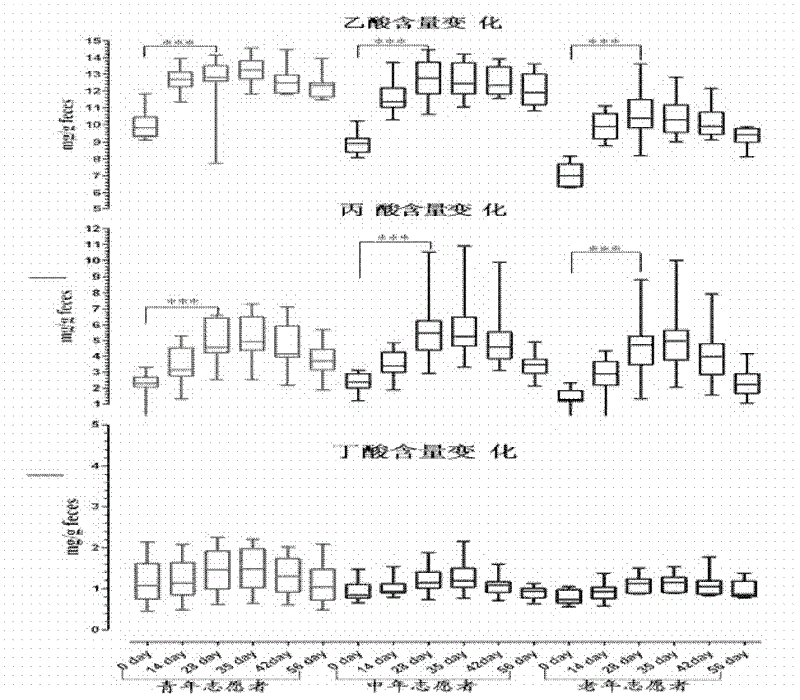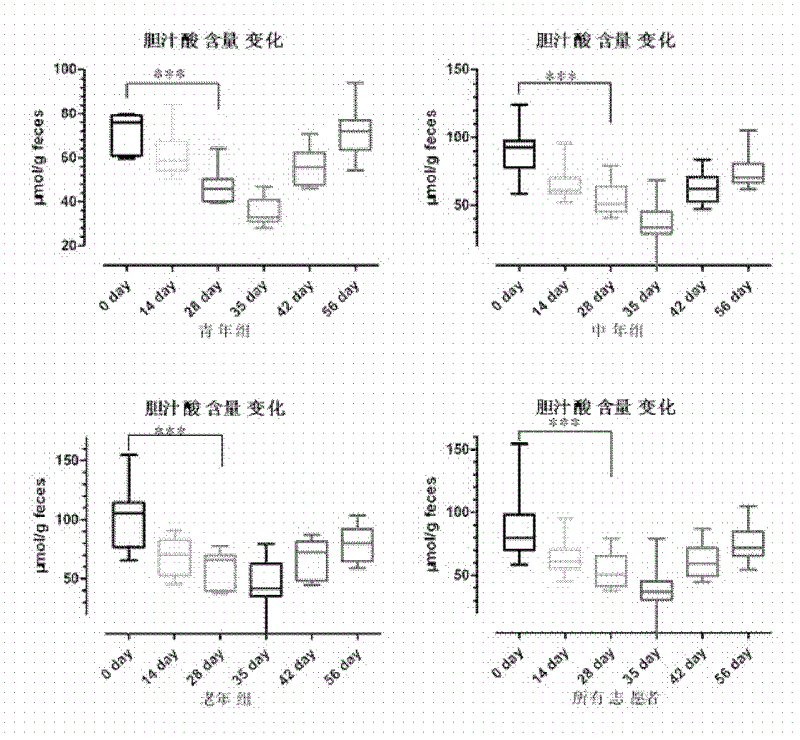Lactobacillus plantarum P8 capable of regulating short-chain fatty acid and total bile acid metabolism in human intestinal tract as well as detection method
A technology of medium and short-chain fatty acids and total bile acids, applied in the field of probiotics, can solve problems such as increasing the risk of gallstones, colon cancer, and human harm
- Summary
- Abstract
- Description
- Claims
- Application Information
AI Technical Summary
Problems solved by technology
Method used
Image
Examples
Embodiment Construction
[0037] A probiotic strain that regulates the metabolism of short-chain fatty acids and total bile acids in the human intestine. The probiotic (Lactobacillus plantarum P8) is isolated from the yogurt handmade by herders in Inner Mongolia and preserved in the Common Microbial Cultures of China Microbiological Culture Collection Management Committee Deposit Center, deposit number: CGMCC No.5468, deposit date: November 18, 2011.
[0038] A method for detecting probiotics that regulate the metabolism of short-chain fatty acids and total bile acids in the human intestine, comprising the following steps:
[0039] 1. Determination of Short Chain Fatty Acids
[0040] 1.1 Collection of test samples
[0041] A total of 33 healthy volunteers were recruited in this experiment, divided into three groups, the youth group (Y group, 11 people, 5 males, 6 females), aged 25-29 years, with an average age of 26.2±1.2 years; the middle-aged group (M group, 12 people, 6 males, 6 females), aged 48-...
PUM
 Login to View More
Login to View More Abstract
Description
Claims
Application Information
 Login to View More
Login to View More - R&D
- Intellectual Property
- Life Sciences
- Materials
- Tech Scout
- Unparalleled Data Quality
- Higher Quality Content
- 60% Fewer Hallucinations
Browse by: Latest US Patents, China's latest patents, Technical Efficacy Thesaurus, Application Domain, Technology Topic, Popular Technical Reports.
© 2025 PatSnap. All rights reserved.Legal|Privacy policy|Modern Slavery Act Transparency Statement|Sitemap|About US| Contact US: help@patsnap.com


